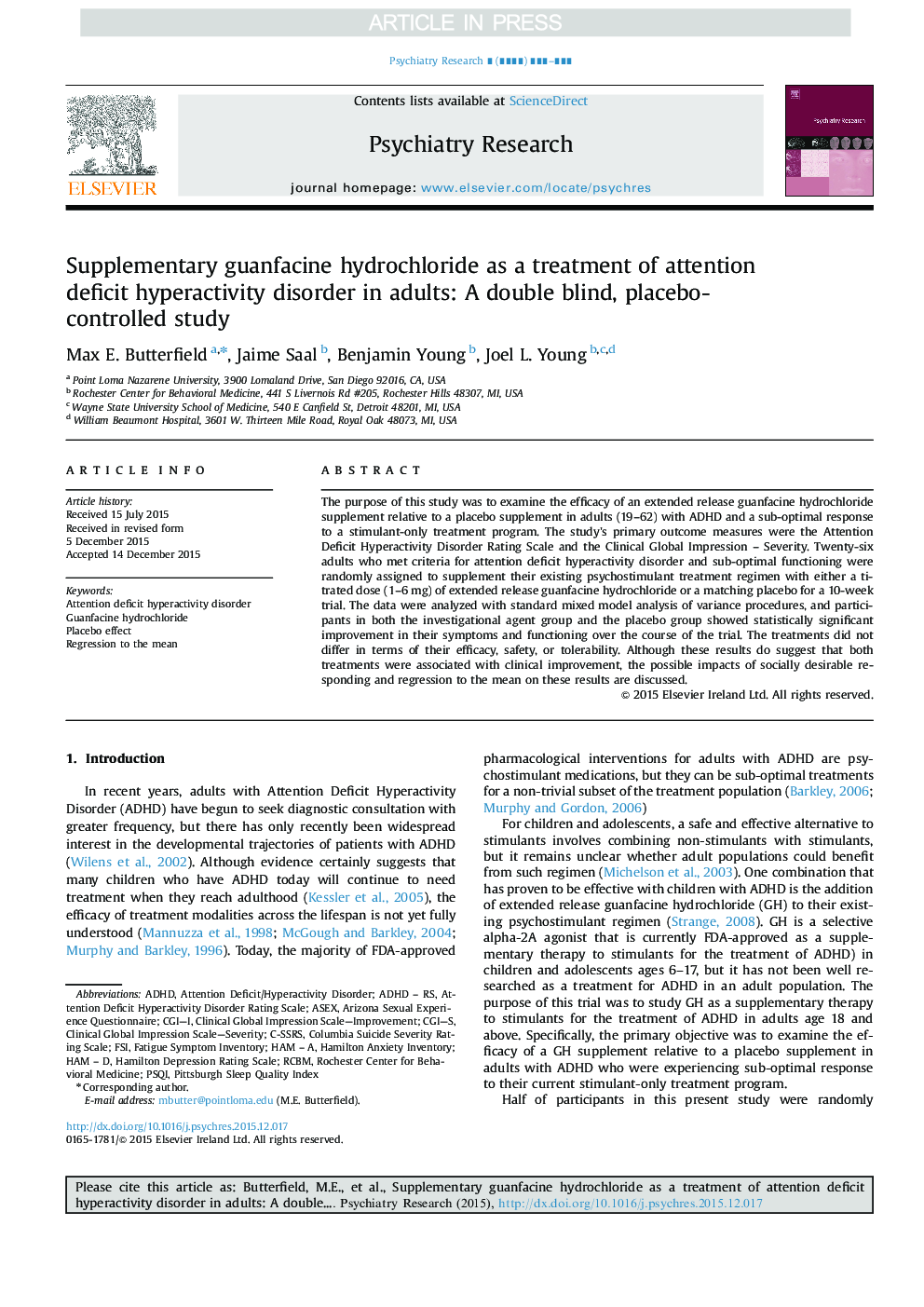| Article ID | Journal | Published Year | Pages | File Type |
|---|---|---|---|---|
| 6813657 | Psychiatry Research | 2016 | 6 Pages |
Abstract
The purpose of this study was to examine the efficacy of an extended release guanfacine hydrochloride supplement relative to a placebo supplement in adults (19-62) with ADHD and a sub-optimal response to a stimulant-only treatment program. The study's primary outcome measures were the Attention Deficit Hyperactivity Disorder Rating Scale and the Clinical Global Impression - Severity. Twenty-six adults who met criteria for attention deficit hyperactivity disorder and sub-optimal functioning were randomly assigned to supplement their existing psychostimulant treatment regimen with either a titrated dose (1-6Â mg) of extended release guanfacine hydrochloride or a matching placebo for a 10-week trial. The data were analyzed with standard mixed model analysis of variance procedures, and participants in both the investigational agent group and the placebo group showed statistically significant improvement in their symptoms and functioning over the course of the trial. The treatments did not differ in terms of their efficacy, safety, or tolerability. Although these results do suggest that both treatments were associated with clinical improvement, the possible impacts of socially desirable responding and regression to the mean on these results are discussed.
Keywords
Related Topics
Life Sciences
Neuroscience
Biological Psychiatry
Authors
Max E. Butterfield, Jaime Saal, Benjamin Young, Joel L. Young,
